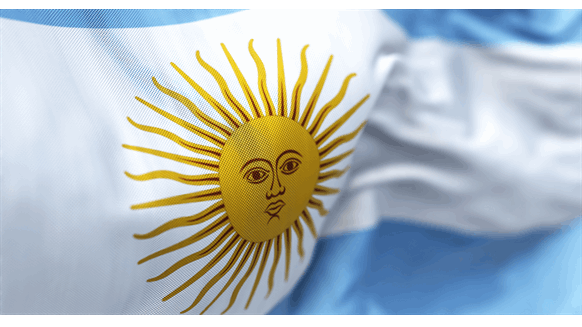The shock favorite in Argentina’s presidential elections, libertarian Javier Milei, would eliminate state intervention in the country’s giant agricultural industry to trigger an export boom.
Milei, a devotee of the free market, promised to quickly dismantle the policies that have held back agricultural investment this century. It would unify exchange rates, eliminate taxes and export quotas, and eliminate direct interference in food prices.
“It’s part of our deregulation program,” Milei said in an interview at Bloomberg’s offices in Buenos Aires on Wednesday. “These are all regulations that we need to get rid of as soon as possible.”
Argentina is one of the world’s leading suppliers of beef, as well as soybean meal and corn to feed the livestock of other countries. But farmers have not been able to fully exploit the potential of the vast flatlands because of years of market intervention designed to raise tax revenues and quell inflation. Milei says Argentina’s high poverty rates show it has been a failure.
Since he plans to reduce government spending and eliminate inflation by abandoning the Argentine currency, the interventions, in addition to going against his libertarian values, would, in theory, become redundant. A subsequent free market system can “achieve an explosion in agricultural activity,” according to Milei’s manifesto.
Still, the path to such a radical change is likely to be difficult: if there were street protests or congressional dissent, it could stop investors in their tracks.
Agricultural exports grew under former president Mauricio Macri’s brief experiment last decade with market-oriented policies. But Milei would go a step further by eliminating billions of dollars in annual taxes on soybean shipments.
In a transition period, farmers would pay the soybean fees in exchange for a smaller income tax bill, Milei said. They would become so rich under Milei that they would even be willing to finance his government, he said, a notion that is anathema to them under the current administration.
Oil and lithium
In the oil sector, Milei said investors should have “no doubt” that he would re-privatize oil driller and refiner YPF SA, which was nationalized in 2012 to spearhead the development of the country’s shale wealth. patagonia But privatization would not happen for about two years, as a Milei government would need time to prepare for the switch to freer energy markets.
“We need YPF and Enarsa to manage the transition while we bring order to the energy sector,” Milei said.
Argentina’s growing shale oil industry has been constrained by capital, price and export controls that Milei should banish. Cash flow restrictions recently drove Exxon Mobil Corp. to put its shale assets up for sale, according to the governor of the oil center of Neuquen.
As for mining and metals, Milei didn’t stray from his ideals, saying he would leave the markets alone.
The government has been working to avoid another Latin American resource curse by trying to turn Argentina’s lithium rush into its own electric vehicle battery manufacturing industry. Asked if he would abandon those efforts, Milei said: “Don’t pick winners. Let the stacks be made where the people want to make them.”
Milei said he would not foster diplomatic ties with China because of what he called its intrusions on personal freedoms. But neither would it hinder Sino-Argentine trade and investment. China is a major buyer of soybeans and raw beef from Argentina, and a leading developer of its Andean lithium deposits.


